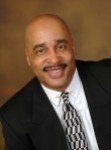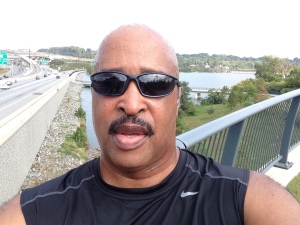By Gary A. Johnson (This is not my waistline)
Americans are getting fatter and fatter by the year. There’s no other way to put it. Health and weight statistics for black Americans is even worse.
According to the publication Health, United States, 2013, 38% of black men in America are considered to be obese compared to 50.8 percent of African-American women. According to the U.S. Department of Health and Human Services, overweight or obese is defined as a Body Mass Index (BMI) of 25 pounds or more.
A 2013 study from the American Psychological Association reported that about 60 percent of black women are obese compared to 32 percent white women and 41 percent Latino women.
Carrying around those extra pounds increases the likelihood of developing Type II Diabetes and High Blood Pressure – two diseases that disproportionately affect the black community.
Being overweight also increases the risk of stroke, heart disease, arthritis and certain cancers. In fact, obesity could become more dangerous for your health than smoking cigarettes.
Yet, in the black community, many folks believe or have convinced themselves that being “big boned” is more acceptable. We need to STOP that thinking now.
If you follow me on Facebook or Twitter, you have read about my struggle to lose weight. If you’ve ever visited my Instagram page, most of the pictures are of food that I cooked and then ate. I’m a damn good cook. I suffer for my food.
I am putting myself out there. I am obese and my condition developed as a result of making a series of poor choices over the past 20 years. I went from weighing 195 lbs to my current weight of 310 lbs.
At one point I was carrying 324 lbs on this 6′ 4″ frame. Fortunately for me, my body has been good to me. I never smoked, used alcohol or drugs and I don’t drink sodas. My weakness is food. I am an emotional eater and I love to cook and eat.
Here I am “walking the trail” on top of the Woodrow Wilson Bridge at National Harbor on the DC side.
Lately, I’ve been able to reverse some of these negative health effects. Two years ago I gave up sugary fruit juice drinks. I drink mostly water, green smoothies or a combination of Braggs Organic Vinegar and water. If I drink tea, I don’t use sugar. I will start my day with low-sodium vegetable juice in place of Orange juice. These simple choices have made a difference in my health. My last blood pressure reading was 116/78. Not bad for a 300+ pound guy. I started exercising (cycling, walking and weights) consistently and stopped eating at fast food restaurants. I also started buying healthier and organic foods. This costs more but I think it’s worth it.
Make no mistake. I have a long way to go and need support. I have lost over 30 lbs 4 times over the last 15 years. The difference this time is that I am doing it sensibly (slow and steady). No fad or crash diets. Is it easy? No! Is it worth the pain and effort? Yes!
“Many African-American women view being obese as part of their culture,” says Thaddeus Bell, M.D., a family practitioner in South Carolina, in an online interview for icyou.com. It is understood within the African-American community that curvy, overweight women are considered more appealing to black men than normal- or under-weight women. There is almost a reverse distortion of body image – with thicker women fighting weight-loss and slender women wanting to gain weight in order to be accepted.
This may account for the staggering statistic that 4 out of 5 African-American women are overweight or obese. It is even more alarming that some of these women are making a choice to live at an unhealthy weight. African-American women of all ages report less exercise than their white counterparts. “Many of them feel that it’s not feminine or they’re afraid to sweat because it will ruin their hairstyle,” adds Dr. Bell.
Other hindrances include not having child care, not having enough time to be physically active, and not feeling safe being active in their neighborhoods. African-American men aren’t off the hook either. African-American men also exercise less than white women, and have the highest prevalence of obesity among all male ethnic groups.
However, African-American men are more active than their female counterparts, which may be the reason that only 28.8 percent are obese, compared to 50.8 percent of African-American women.
There is an interesting video called “Dealing with Obesity in the Black Community” on YouTube by Walter Lee Hampton II. This is a no non-sense video about exercise, eating and living a healthier life.
I would also recommend reading “Obesity and the Black American: Causes, Culture, Consequences, and Costs.”
 Gary A. Johnson is the Founder & Publisher of Black Men In America.com a popular online magazine on the Internet and the Black Men In America.com Blog. Gary is also the author of the book “25 Things That Really Matter In Life.” To learn more about Gary click here.
Gary A. Johnson is the Founder & Publisher of Black Men In America.com a popular online magazine on the Internet and the Black Men In America.com Blog. Gary is also the author of the book “25 Things That Really Matter In Life.” To learn more about Gary click here.























Comments